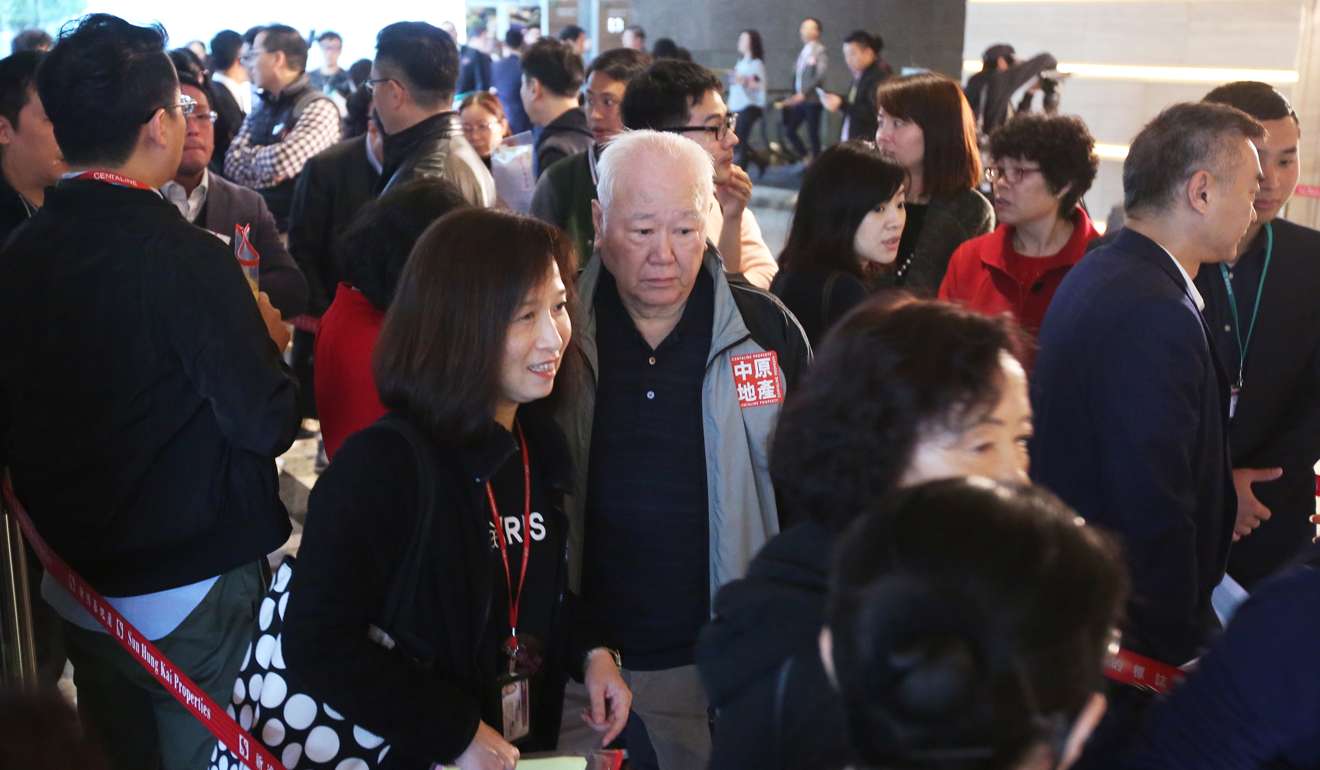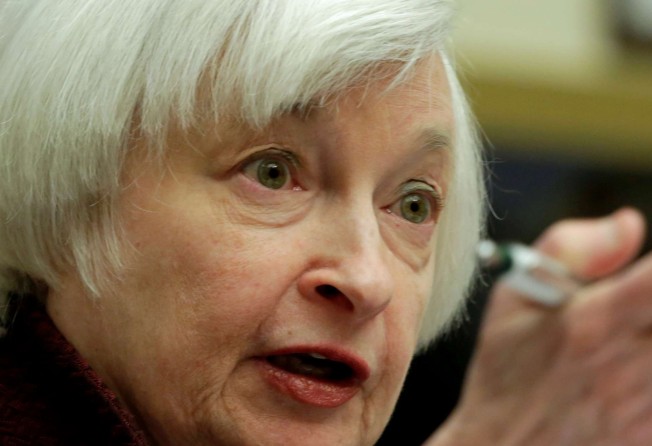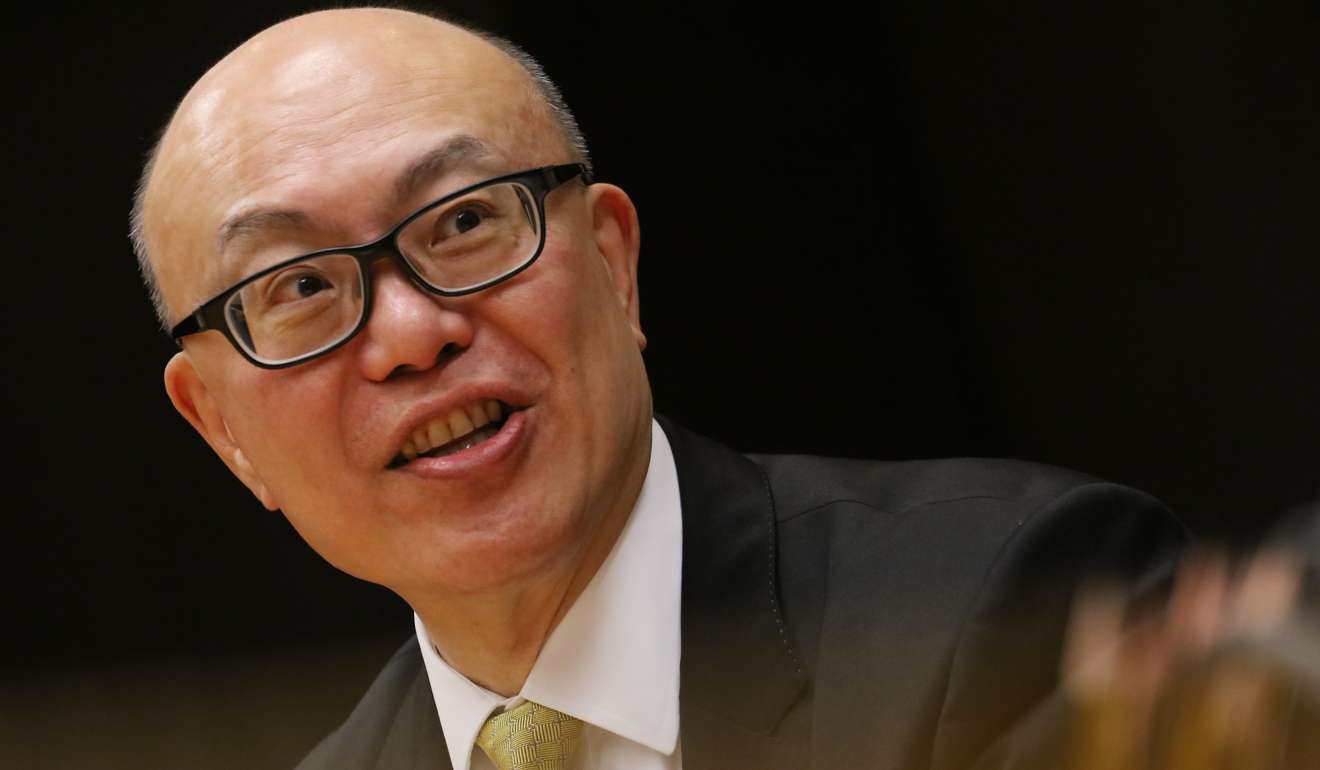
Home prices remain stable in Hong Kong despite Fed’s interest rate hike
Homes in the city are still being snapped up by enthusiastic buyers despite the Fed’s recent rate hike and the various cooling measures now in place

Are Hong Kong property owners living in a fool’s paradise, expecting interest rates to remain low? In raising short-term rates after the US Federal Reserve raised its benchmark interest rate by 25 basis points last week, the Hong Kong Monetary Authority’s (HKMA) chief executive Norman Chan Tak-lam warned that more rate rises are expected to follow, meaning mortgage rates will soon follow suit.
Chan advised homeowners and property investors to make necessary preparations for managing credit, liquidity and other relevant risks.
The city’s de-facto central bank raised the base rate by 25 basis points to 1 per cent, and Chan suggested last week that “some of the estimated US$130 billion of capital inflow into Hong Kong since 2008 will be exchanged back to the US dollar”.
“A capital outflow from Hong Kong is expected, and the Hong Kong dollar may trade at the weaker end of the peg at HK$7.85 per US dollar.”
Chan said that the Fed expected to hike rates twice more this year, which is in line with the market’s expectations. “For now, it is still difficult to foresee what impact US rate increases will have on Hong Kong’s short-term interest rate movements.”

Coupled with the interest rate hike, the government already has stiff cooling measures in place, such as the 15 per cent stamp duty on second-homebuyers. But, despite the various cooling measures, home prices in Hong Kong have soared, as evidenced last weekend when more than 1,000 new homes were snapped up between last Friday and Sunday at a trio of sales events by major developers.
And, as reported by the South China Morning Post, which quoted agents familiar with the transactions, a family of three buyers spent more than HK$200 million to purchase nine homes at Sun Hung Kai Properties’ Cullinan West, the most enthusiastic response during a bumper weekend for Hong Kong developers.
Commenting on the Fed rate hike, financial analysts say that Hong Kong banks have adequate liquidity and, with lenders locked in an intense competition in the mortgage market, no single bank was willing to raise lending rates at the moment.
I believe property prices will remain steady this year. The supply of luxury homes is still limited ... the prime residential market should fare better than the mass market
“At this point in time, Hong Kong banks still have liquidity [and will] not follow the US rate hike. Currently, Hibor-based mortgage plans on new home purchases are priced at Hibor plus 1.28 per cent to Hibor plus 1.29 per cent [available to residential properties valued at HK$10 million or above]. Based on the one-month Hibor rate as at March 16 [0.45 per cent], the lowest lending rate available on the mortgage market is about 1.73 per cent. That compares with about 2 per cent actual lending rate last seen in January,” says Ivy Wong Mei-fung, managing director of Centaline Mortgage Broker.
Wong adds that owing to this gap, there is still room for Hong Kong banks to buffer the 25 basis point hike by the US Fed, which she believes will have modest impact on Hong Kong’s housing prices in the near term. Despite that, she says Hibor will eventually follow the US interest rate cycle, and so will the prime rate.
Denis Ma, head of research at property consulting firm JLL, adds that Hong Kong’s Hibor rates have already edged higher in anticipation of the US rate hike, and local banks have responded by lowering spreads on Hibor-based mortgages.
“For commercial real estate investment, however, higher financing costs may have been passed on to borrowers. Overall, local banks are unlikely to raise lending rates amid stiff competition, as mortgage businesses [are] plummeting against low transaction volumes following the government’s cooling measures. Therefore, any effect of rising interest rates on property prices will likely occur later in the rate hike cycle. A quick observation of local banks suggests that they are likely to absorb up to two interest rate hikes from the US Fed before adjusting borrowing rates locally.”
So how would the property market fare in the present economic climate this year?

“I believe property prices will remain steady this year. The supply of luxury homes is still limited. Luxury homebuyers are more cash rich and rely less on mortgage funding, and therefore the prime residential market should fare better than the mass market,” Choi says.
Ma says that Beijing’s growing caution towards outbound investments is likely to have a bigger impact on Hong Kong’s property market, but “whether this will help reverse the upward trend in prices, however, remains to be seen”.
“Mainland buyers have been among the most active in the property investment market over the past 18 months and involved in the largest transactions over the period.”